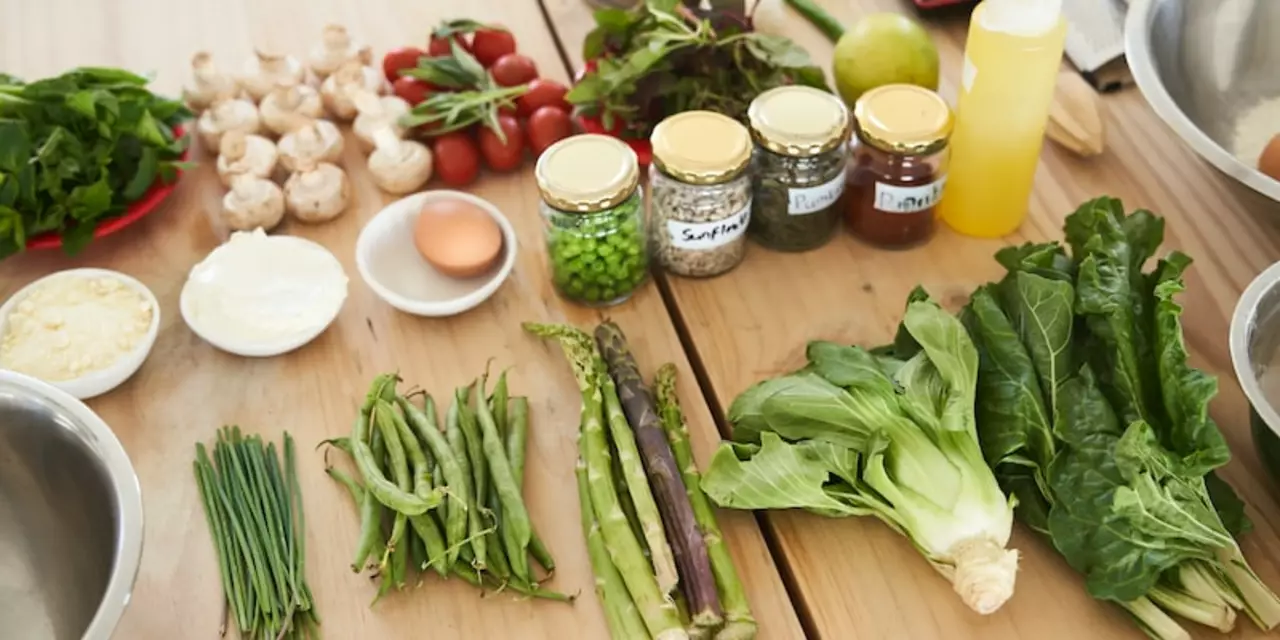Vegetarian Lifestyle: Practical Tips for Eating Well Everywhere
Being vegetarian doesn't have to be hard when you leave home. You can find food, cook simple meals, and enjoy travel without stress. This page collects straightforward advice, quick recipes, and tools to help you stick to your diet wherever you are.
First, plan a little before you go out or travel. Check menus online, call restaurants, or browse grocery store websites of your destination. Learn a few local words for common ingredients like dairy, eggs, fish, and meat so you can ask staff what is in a dish. Carry a short list on your phone or a printed card that explains your dietary needs in the local language.
Quick meals and snacks that travel well
Packable snacks make days out much simpler. Nuts, seeds, dried fruit, nut butter packets, and roasted chickpeas are filling and findable almost anywhere. Instant grains like couscous or quick oats plus a small spice kit let you make hot meals in hostels or hotel rooms. A travel-friendly kettle or a small electric cooker changes what you can prepare.
When you have a kitchen, focus on easy staples. Rice, pasta, canned beans, tofu, and frozen vegetables are cheap and reliable. Make a base sauce with canned tomatoes, garlic, and olive oil and use it on pasta, rice bowls, or steamed veg. Learn three go-to recipes that use these ingredients so you can eat well without hunting for special stores.
Finding vegetarian options and communities
Use apps and social media to locate vegetarian restaurants and groups. Search for vegan or vegetarian hashtags in the city you visit to find recent posts and recommendations. Join local vegetarian groups or forums before you travel to get tips from residents and sometimes meet up for meals. Farmers markets and international grocery stores often carry fresh produce and ethnic staples that are naturally vegetarian.
At restaurants, order simple dishes and ask for modifications. A vegetable curry, a cheese omelet, or bean tacos are often easy to adapt. If you face language barriers, point to ingredients on the menu and ask for them without meat. Most cooks will appreciate clear, polite requests.
For nutrition, include legumes, whole grains, nuts, seeds, dairy or fortified plant milks, and a variety of vegetables. If you avoid eggs and dairy, consider a B12 supplement and check vitamin D especially in low sunlight regions. A basic multivitamin can cover gaps when your diet varies while traveling.
Finally, stay curious and flexible. Trying local vegetarian dishes can be a highlight of travel. Keep simple tools and a small pantry of staples, use apps and local groups for help, and plan ahead when you can. With a few habits you can enjoy life as a vegetarian anywhere.
Make a small checklist before any trip: note local vegetarian dishes to try, list grocery items to buy on arrival, pack at least three days of snacks, and save contact info for vegetarian groups or restaurants. That simple step really avoids last-minute problems.
How do vegetarians survive outside India?
Vegetarianism is a way of life in India, but how do vegetarians survive in countries where vegetarianism is not so common? This article explores the different strategies that vegetarians can use when travelling outside India. Firstly, it suggests researching local restaurants for vegetarian options and looking for food items without animal ingredients. Secondly, it suggests carrying snacks and ingredients to prepare vegetarian meals. Finally, it encourages looking for vegetarian communities or joining vegetarian tours to make it easier to find vegetarian options. In conclusion, vegetarianism can be maintained even when travelling abroad by taking the right steps.

 Cricket
Cricket